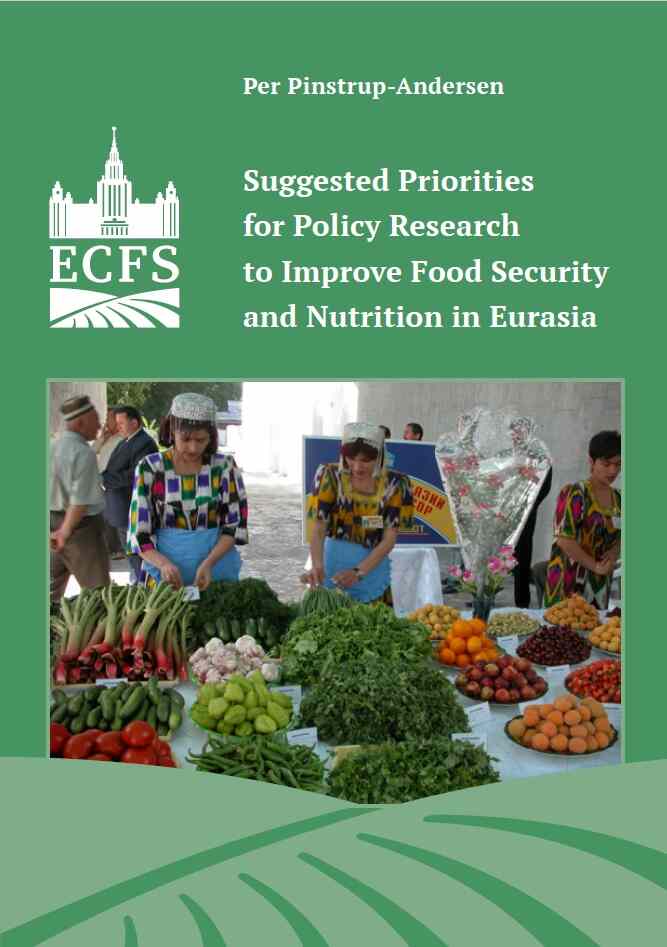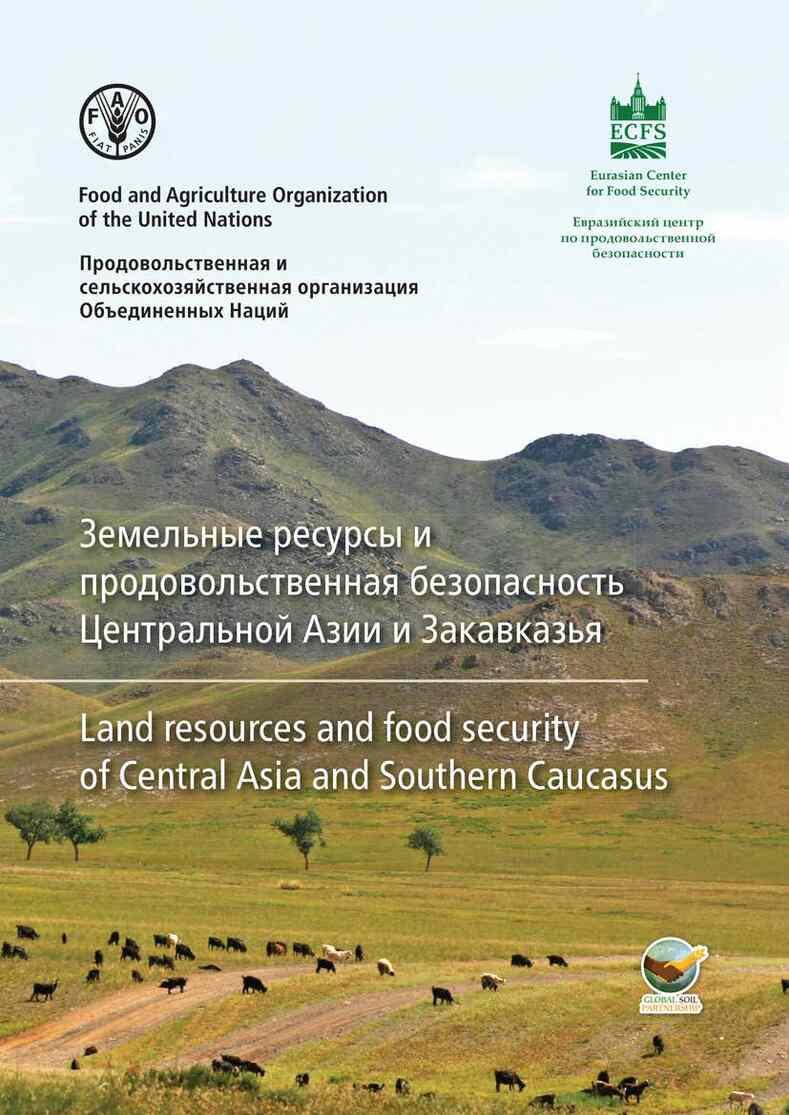Food Security in the Eurasia: Case Studies is an annual publication launched in 2016. Each volume includes six to seven case studies on food and nutrition security policy in the Eurasian region.
In 2020, the fith round of Case Study Projects on Food and Nutrition Security Policy in the Eurasian region was held. This is a joint Eurasian Center for Food Security at Lomonosov Moscow State University (ECFS) / World Bank project.
The goal of the project is to promote cooperation between researchers in the Eurasian region to prepare a series of brief analytical and educational case studies on food security and nutrition policies. The competition is open to researchers, lecturers and professors with an active research agenda on a broad range of topics relevant to food and nutrition security. Collaboration between researchers representing different countries and different institutions is highly encouraged.
2016
The first volume published in 2016 presents a set of seven case studies covering various aspects of food security in Armenia, the Kyrgyz Republic, Tajikistan, and Uzbekistan. The following food policy issues are discussed by the case study authors: intensive fish farming and relationships among supply chain members in the dairy sector in Armenia; irrigation erosion and issues in the traditional livestock sector in Kyrgyzstan; restoration of saline soils in Tajikistan, among other topics.
Download Food Security in the Eurasia 2016.
2017
Food Security in the Eurasia 2017 includes six case studies on a range of food security topics in Kyrgyzstan, Russia, Tajikistan and Uzbekistan. These case studies cover the following topics: organic agriculture in Russia; food system shocks and their impact on the well-being of the population in the Kyrgyz Republic; strengthening agricultural resilience against drought in Uzbekistan; food pricing in Tajikistan and Uzbekistan, among other topics.
Download Food Security in the Eurasia 2017.
2018
The 2018 volume is devoted to improving food quality and preventing food loss in the Eurasian region by supporting sustainable agriculture value chains. Three case studies included in this publication offer evidence to support policy making in the area of food loss in Armenia, the Kyrgyz Republic, and Uzbekistan. The other four cover various aspects of improving the efficiency of food value chains in Armenia, the Kyrgyz Republic, Russia and Uzbekistan. The case study authors discuss policy issues related to food security in Russia’s Far North, school meals program development in the Kyrgyz Republic, organic agriculture development in Uzbekistan, strengthening the wild harvest value chain in Armenia, among other issues.
Download Food Security in the Eurasia 2018.
2019
Compilations of case studies is devoted to various aspects of food security in Eurasian economies. Authors discuss the following topics: The Role of Marketing Cooperatives in Developing Russia’s Organic Agriculture Value Chain and Land Use Adaptation to Prevent Adverse Effects of Climate Change on the Yield of Irrigated Croplands in the Nukus District in Uzbekistan.
Download Food Security in the Eurasia 2019.
2020
Seven case studies included in this volume have been prepared by 15 scholars from Armenia, the Kyrgyz Republic, the Russian Federation, and Uzbekistan. The studies cover various aspects of the impact of the COVID-19 pandemic on food security and nutrition. Responding to the current challenges, the authors of the case studies have examined issues such as the impact of the COVID-19 pandemic on the nutrition of the population and on urban food systems in Uzbekistan and Armenia; measures to ensure uninterrupted organization of school meals in Armenia amid the pandemic; viable options for transforming systems of agricultural sales, taking the case of the Semeynaya Eco-Farm in the Leningrad region as an example; measures to reinforce food chains in vegetable farming and fruit growing in Armenia; proposals for streamlining the regulation of Russian wheat exports when facing price shocks; and methods for supporting the sustainability of animal husbandry, taking the Ak-Talaa district of the Kyrgyz Republic as an example.



